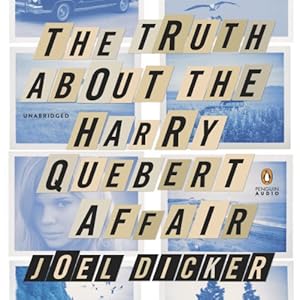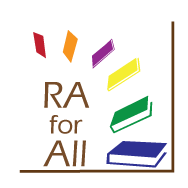************************************
Recently, I listened to the final entry in Deborah Harkness’ bestselling All Soul’s Trilogy, The Book of Life.
First, you need to read my review of A Discovery of Witches (book 1) and Shadow of Night (book 2). Those reviews have a ton of appeal info and readalikes.
Now, book 3. I have been struggling with what to say about this book because I did not like it. Now, I should back up and say I didn’t love the first book either, but that is because paranormal romance is not my thing, but I thought it was well executed and clearly saw a huge market for it [details here]. And then, book two, I really enjoyed because it was completely set in the 1590s. I loved it as a historical adventure.
So, I was cautiously optimistic about book 3, but I have to say, after finishing it, I was not impressed.
While I was looking over other reader comments to prepare what I was going to say, I happened to find one review on Goodreads which hit at all of the issues I have with the book. She even, like me, was surprised by how much she enjoyed the first book. So here I will repost Heather K’s review from Goodreads and then come back with my final comments and readalikes:
What a huge let down this book was. I'm talking EPIC proportion let down.
First of all, I am shocked at all the positive reviews I'm seeing. I feel like we didn't read the same book.
A Discovery of Witches was one of my favorite reads of 2011. I wasn't as much into reading then, and I stumbled across this one while randomly perusing my library for books. I fell in love with the story, the characters, and the magic of it all. I felt like the story was building up for something important, something powerful.
The second book was also pretty successful for me. It was lovely in the way that I find historical fiction is pleasurable. I also have a deep love of time-travel books, so I was practically guaranteed to fall head over heels.
A lot of time has passed since the second, and my expectations were sky high for the third. Unfortunately, the careful world-building fell to crap in the final installment. I'll try to break down my main issues with the story without giving away any spoilers.
1) The POV switches: I have very specific opinions about lots of POVs in the a story: Namely, I hate them. This book had at least 5 different points of view, which irritated me to no end. Why not just two? Those extra points of view just seemed lazy to me, just a way for the author to do some "telling" and less "showing" about the characters. To make matters worse, the author switched from 1st to 3rd person throughout the book! Talk about a headache. It was a terrible choice, in my opinion.Back to Becky
2) The number of characters: This book was like a who's who from the previous two books. I swear, no one was left out. There were so many people re-introduced that I had a hard time keeping track of everyone. The story felt so... cluttered. All of these extra people and their minor storylines weighed the plot down so much. It became sort of jumbled and confusing. I'm not sure why the author didn't just keep her focus on the main characters.
3) The lack of secrecy: I'm so confused! In the previous books, Diana and Matthew guarded the secret of their relationship, the quest for the book, and the secrets of Matthew's family fiercely. In this book? They let it alllll hang out. They tell everyone EVERYTHING! Everyone seems to know what they are searching for, that Diana is pregnant, simply everything! I have no idea why this had them throwing caution to the wind. They freaking told an entire class of students what they were researching. It was madness. Then they are looking for the person "leaking their secrets"... it could be the pizza boy for all they know! It was truly bizarre.
4) Diana's familiar: I won't say too much about this topic so I don't give away any spoilers, but I was utterly confused about the change in the firedrake's personality throughout the story, especially towards the end.
5) The haphazard plot: It honestly felt like the author didn't think this trilogy through very well. It was like the author had a brilliant idea for the first book and then had no idea how to carry it through. The third book had to reveal some mind blowing things to fit with all the buildup, but instead it was a collection of jumbled tangents. The main characters jumped from location to location, doing a series of things that didn't really make sense. They seemed like chickens with their heads cut off. The book didn't seemed planned. It was almost as though the author was making it up on the fly.
6) The blood rage thing: I hated this plot point. Blood rage was supposed to be this crazy thing, but some deep breathing and zen meditation seemed to snap all the characters out of it?? I was so confused as to why it was this big issue to begin with if it was that easy to control. I would have preferred it be a mindless, insane thing instead of the nuisance it was made out to be. It was a poorly fleshed out concept that could have been more powerful.
7) The Book: Okay, what is the deal with that book? We never truly get answers. I still am left wondering who created it and why. If you are reading this book thinking that something wondrous will be revealed, don't hold your breath.
8) Plot inconsistencies: There are so many plot elements that make no sense or are left dangling. I don't want to go into them all because I want this review to be spoiler free, but there were many instances where the book contradicts itself.
All in all, this book was a huge bummer. I give it 2 stars, mainly for nostalgia because I was happy to visit with these characters again.
A Note on the Audio: I listened to all 3 books. In fact, I stuck with listening after having such a great experience with Jennifer Ikeda as the narrator in the first book. She was Diana to me. I powered through and finished the trilogy because of Ikeda.
Three Words I Would Use To Describe This Book: trilogy finale, paranormal romance, intricately plotted
Readalikes: In my review of the first book, I have a range of readalike options which capture the wide appeal of this series.
However, since I am not impressed with how it all ends, I am going to focus my new readalike suggestions on others who are better at providing solid and satisfying paranormal romance.
Kelley Armstrong who writes excellent paranormal stories featuring strong women many of which contain romance, and as a bonus Jennifer Ikeda even narrates some of the audios. Dime Store Magic is a classic Armstrong tale that deal with witches.
Kim Harrison and Ilona Andrews are 2 other excellent authors of paranormal romance who have proven themselves over time [although Andrews is actually 2 people].

















